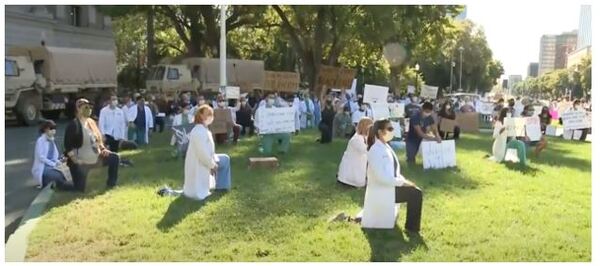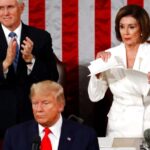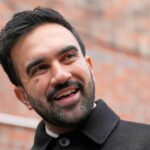
–>
January 9, 2023
Medicine, like most sciences, entails thinking and hypothesis creation to explain the myriad complexities of the healthy and diseased human body.
‘); googletag.cmd.push(function () { googletag.display(‘div-gpt-ad-1609268089992-0’); }); }
Hypotheses are tested and refined, with new information or insights nudging or abruptly shifting current knowledge in a new direction.
For examples, bloodletting with leeches is no longer standard medical practice for most ailments as it was up until the late 19th century. More recently, Vioxx was considered a safer painkiller, until it was found to cause heart attacks and strokes, similar to another “safe and effective” product introduced about two years ago. Oxycontin was marketed as a nonaddictive pain killer until it devasted hundreds of thousands of lives and families and was shown to be otherwise.

YouTube screen grab
Physicians, upon medical school graduation, recite the Hippocratic Oath. Quoting from the revised version (simply because the language is easier to understand), physicians swear, “I will not be ashamed to say, ‘I know not’” and “Above all, I must not play at God.”
‘); googletag.cmd.push(function () { googletag.display(‘div-gpt-ad-1609270365559-0’); }); }
Saying “I don’t know” is what drives the pursuit of new or alternate hypotheses. Physicians of a few hundred years ago saw their bloodletting patients die and didn’t know why, so they devised better treatments by asking questions and not playing God.
Some modern physicians play God by declaring, “I am the science,” as if they are the final arbiter in all of medicine. I assume Dr. Anthony Fauci recited the Hippocratic Oath when he graduated medical school.
What questions should physicians have been asking over the past two years? Are they staying mum because they believe the science is settled and challenges to the status quo are heresy? Or are they cowed into silence over fear over losing their ability to practice the profession which they spent a decade learning and for which they earn their living?
Start with the highly touted COVID-19 vaccines.
In the United States, 80% of the population have received one dose and 68% two doses. Yet almost three years into the pandemic, this recent headline from ABC News suggests that there is no end in sight, “WHO sounds the alarm: New COVID variant is most transmissible yet.” And the Washington Post cautions “COVID hospitalizations rising post-Thanksgiving.”
Can we ask why? Wasn’t mass vaccination supposed to prevent this?
‘); googletag.cmd.push(function () { googletag.display(‘div-gpt-ad-1609268078422-0’); }); } if (publir_show_ads) { document.write(“
CDC director Dr. Rochelle Walensky in April 2021 told the world, “Our data from the CDC today suggests that vaccinated people do not carry the virus, don’t get sick.” Any challenges to this statement were deemed anti-vaccine disinformation. Until nine months later when the science changed, “CDC Director Rochelle Walensky went on CNN and said that vaccines cannot prevent transmission of COVID-19.” Yet most physicians did not question the initial and incorrect assertion.
On their website the CDC states, “COVID-19 vaccines are safe and effective.” Dr. Fauci told us, “Vaccinated people essentially become ‘dead ends’ for the virus to spread within their communities.”
Then why is COVID still around and why are many who have had multiple boosters still getting COVID? Can that be asked? Or is this all considered Russian or Q-anon propaganda?
As a necessary disclaimer, I am not anti-vaccine, having received a full course of COVID vaccines two years ago. But as a physician, I am all about asking questions and challenging existing dogma when a new or better approach should at least be considered.
Regarding safety, can we ask about the M-word, myocarditis? VAERS data notes 25,000 cases post vaccine. Steve Kirsch calculated the VAERS underreporting rate as a factor of 41, meaning there could be a million or more cases of myocarditis, many subclinical. If any other medical product yielded such a safety signal, physicians would certainly be asking questions.
Yet such questions are labeled misinformation, vile, or conspiracy theory, leading to media censorship and potential loss of employment or medical license. This is despite numerous peer-reviewed studies showing an association between COVID vaccines and myocarditis. Association is not causation but warrants questions that few physicians are asking.
This leads to Damar Hamlin’s collapse during a recent NFL game. No one knows why this happened, so we need to ask and think. If it is attributed to “commotio cordis” as virtually all the corporate media insist, then questions must be considered. Such as why in a football hit that occurs multiple times per game, in hundreds of games per year, in a hundred-year NFL history, has this not happened previously? Could other cardiac anomalies, congenital or acquired, be a factor? Possibly but these conditions are screened for during the extensive preseason evaluation of NFL players.
There are multiple possible causes for Damar’s cardiac arrest but to dismiss certain possibilities out of hand because they are politically incorrect is a disservice to every professional football player in America who, if vaccinated, must be wondering if this could happen to him.
Good medicine is asking questions and forming a differential diagnosis, ruling out possibilities based on science, not on politics.
Here is cardiologist Dr. Sanjay Verma asking these questions and forming a thoughtful differential diagnosis which is the basis of medical diagnosis. Few however are asking, instead they just accept the party line – commotio cordis or shut up.
Young healthy athletes can suffer cardiac arrest and death while playing their sport, and in past decades this ranged from 30 to 60 per year. In the past two years, we have seen that many deaths each month. Is anyone asking why? If breast cancer deaths suddenly increased tenfold, doctors would be asking questions.
Then there are masks, lockdowns, and distancing. After being told for years that these measures were ineffective in viral pandemics, they suddenly became lifesaving and mandatory. Ask questions or want to see the prospective randomized clinical trial results supporting these measures and get cancelled or investigated by the medical establishment for “disinformation.”
We are also not to inquire about off-label medications, FDA-approved for human use with decades of safety, but not to be considered or even discussed as early outpatient treatment options for COVID because these human medicines are suddenly horse medicine or they “will kill you.”
Several recent news articles should also raise questions from the medical community.
First this, “A survey by Steve Kirsch found sudden death is the No. 1 cause of death among those under the age of 65 who got the COVID jab.” Then this, “Over 260 athletes and former athletes in the United States have died from cardiac arrests or other serious issues after taking COVID-19 vaccines, according to data from a recent peer-reviewed letter to the editor.” Or this, “UK: ONS Whistleblower Reveals Massive Spike in Excess Deaths Since ‘Vaccine’ Rollout, More Than 1000 a Week.”
Speaking of sudden deaths, three young Massachusetts police officers “passed away suddenly in the last seven days.” There were also the two ABC News producers, aged 28 and 37, that “died suddenly and unexpectedly.” Is “sudden death” now perfectly normal and if you question otherwise, it’s “conspiracy theory”?
So many sudden and excess deaths, far more than the norm, and it must not be questioned, instead attributed to climate change. I am not asserting cause and effect, but simply an association that warrants scrutiny to see if vaccines are a risk factor in these events, much like identified risk factors for other diseases. It is a public health disservice to ignore known risk factors.
If doctors aren’t curious about any of this, average Americans are. Rasmussen Reports, “Nearly half of Americans think COVID-19 vaccines may be to blame for many unexplained deaths, and more than a quarter say someone they know could be among the victims.” If nonphysicians are curious, why isn’t the medical establishment?
Are these sudden deaths all odd coincidences? Should we just scratch our heads, move along, and shut up? Or should physicians be asking how and why these anomalies are occurring? What happened to curiosity and thought?
Not only is this bad medicine, but it destroys the credibility of the medical profession. According to Pew Research, “confidence in medical scientists to act in the best interests of the public” has dropped from 40 to 29 percent over the past two years of COVID. Perhaps physicians asking questions about important public health issues would be more confidence-inspiring than promoting transgender surgery or using the proper pronouns.
America has the best and most innovative medical care in the world. Woe to this noble profession if politics, fear, and censorship replace questioning, challenging, and discovery.
Brian C. Joondeph, M.D., is a physician and writer. Follow me on Twitter @retinaldoctor, Truth Social @BrianJoondeph, and LinkedIn @Brian Joondeph.
<!– if(page_width_onload <= 479) { document.write("
“); googletag.cmd.push(function() { googletag.display(‘div-gpt-ad-1345489840937-4’); }); } –> If you experience technical problems, please write to [email protected]
FOLLOW US ON
<!–
–>
<!– _qoptions={ qacct:”p-9bKF-NgTuSFM6″ }; ![]() –> <!—-> <!– var addthis_share = { email_template: “new_template” } –>
–> <!—-> <!– var addthis_share = { email_template: “new_template” } –>







